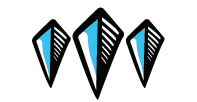Phones and Electronic Devices
Phones, iPods, and other electronic devices can be distracting and disruptive. Students may use cell phones before school begins in the morning, after school ends for the day, and at lunch. At all other times, cell phones/devices must be turned off completely and kept out of sight.
Here are the details:
- Phones/devices must be turned off and put away in the student’s backpack, purse, or the classroom storage box/wall organizer.
- If student has a phone or device without explicit teacher permission, the student must stow the phone in the classroom storage box/wall organizer for remainder of class period.
- Students who refuse to stow the device must take it to the main office, where phone will remain for the rest of the day. The student may pick up the device from the office after school.
- Students who refuse to take their device to office when asked will receive a written referral to the principal for follow-up with the student’s parent/guardian.
- Multiple violations of this policy will result in consequences ranging from a ban on the possession of a device to the student’s reassignment back to their boundary school.
Canyons Responsible Access and Use Conduct Policy
The Internet, Canyons Network, and software and computers are for school educational purposes only. All students and parents/guardians must review and sign a Canyons District “Responsible Access and Use Conduct Guideline” agreement each school year. Violation of the use provisions stated in the policy may result in limitation, suspension or revocation of computer and network privileges, and/or other disciplinary action by the school, by Canyons School District, or by legal authorities. Computers are only to be used under a teacher or staff member’s supervision.
Copyright Rules
Federal copyright laws protect authors of “original works of authorship.” Documents, images, software, music, applications and other internet content are considered to be copyrighted unless permission to use it is clearly specified. It is the student’s responsibility to (1) obtain written permission from the owner of the content, (2) obtain approval from the classroom teacher prior to using any copyrighted material and (3) properly cite all materials used in student work.
Academic Honesty/Plagiarism
Diamond Ridge teachers and administrators understand students are under pressure to earn passing grades. But cheating damages students’ integrity, and prevents teachers from knowing how to help students understand the subject they are learning. Plagiarism is using the work of another person and representing it as your own. It is considered academic cheating. Diamond Ridge students are expected to demonstrate academic and personal integrity. Suspected incidents of cheating or plagiarism will be investigated, with appropriate disciplinary action taken if a student is found to have cheated or plagiarized the work of another.
